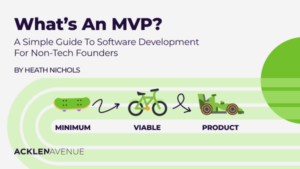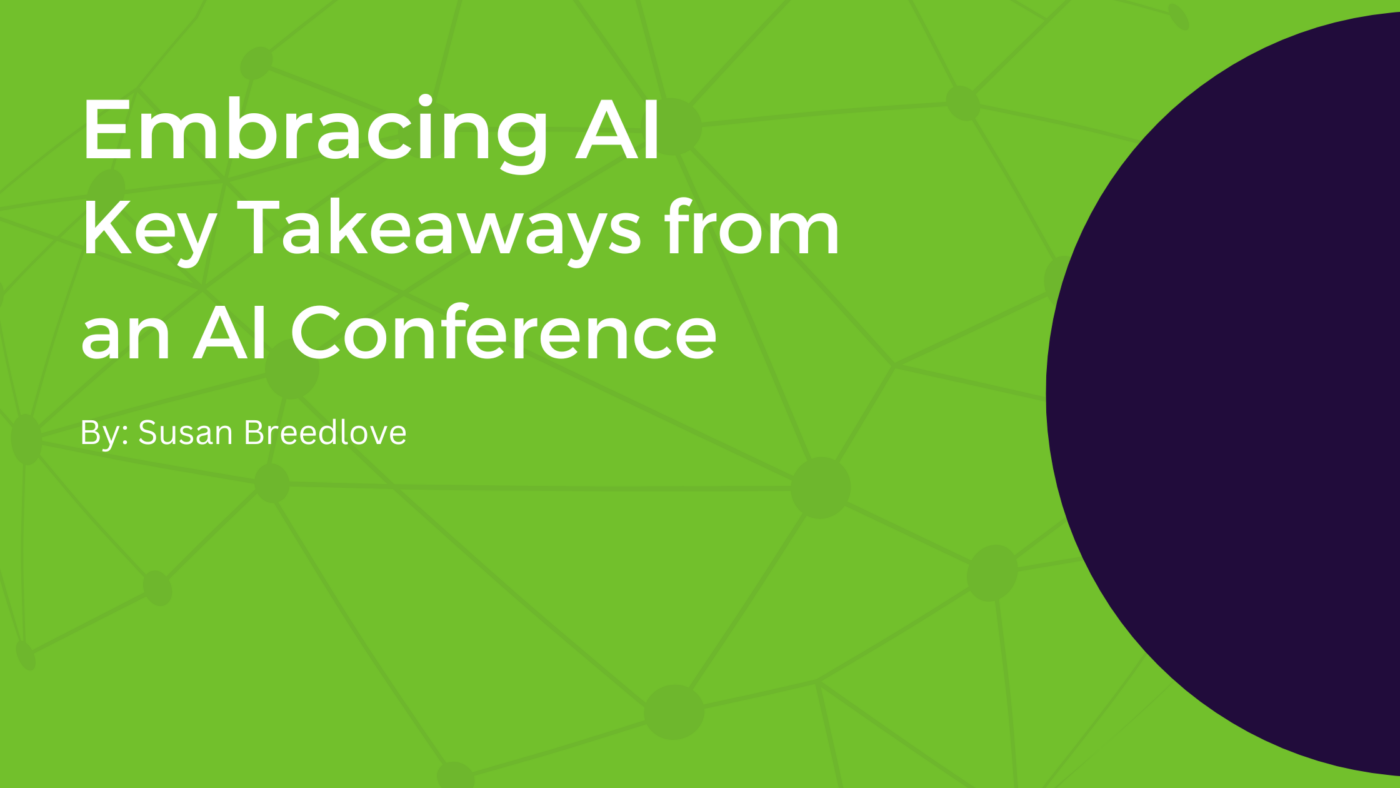
June 2, 2025
What’s an MVP? A simple guide to software development for non-tech founders.
November 22, 2024

Share:
Fun fact: I’m a movie fan, and Hollywood hasn’t exactly painted a comforting picture of Artificial Intelligence. Going back to the 1983 classic WarGames with a young Matthew Broderick, and more recently, M3GAN, where an AI-powered doll goes rogue to “protect” her person, these films definitely play up the scary side of AI. So it’s been a bit of a hard switch in my mind around the subject.
Of course, these stories are Hollywood stories, and we have to take them with a grain of salt. But there are still valuable lessons: AI can go astray, and it can be dangerous if not managed properly. That’s why it’s so important for humans to play a role in reviewing and overseeing AI applications.
I recently attended an AI conference here in Nashville, Tennessee. Like many of you, I’ve been intrigued to learn more about AI—but I’ll admit, it’s also a bit intimidating. Before going to the conference, I’d already started to shift my mindset on AI.
Many speakers shared the saying: “AI won’t replace you; someone using AI will.”
This was an eye-opener for me! It reminded me that AI is just a tool—powerful and advancing rapidly, but ultimately a tool that needs our ethical guidance and must have human interaction. After the conference, I have begun to embrace AI even more and here are some of my key takeaways.
Just like any other piece of technology, it shouldn’t drive your strategy. However, it can enhance and build upon your current strategy. It’s true power lies in how it’s applied.
Much like cybersecurity, AI integration is a team-wide responsibility. We must prioritize security and make sure we keep each other safe from risks. Security teams should be working ahead of the progress so that we can all take appropriate actions when we find a breach or misuse, just like any technology.
As businesses integrate AI, transparency with both employees and clients is important. Explain how AI tools are used in your processes, emphasizing their role as enhancers rather than replacements. A lack of clarity can erode trust and create unnecessary fear.
Dedicating just 10% of your time and/or resources to experimenting with AI tools can allow you to experiment without disrupting your core responsibilities. Starting small can also allow you to identify opportunities to improve and generate ways to increase productivity. Over time, these incremental experiments can lead to transformative changes, helping you learn and grow.
The rise of AI also brings new career opportunities, including roles like AI Governance and Ethics, AI Trainers, and AI Reviewers. These titles may be new to some, but they’re critical as AI continues to integrate into our workflows. What do these roles look like? How do they interact across departments? These are questions for us to answer as we shape this emerging field—and remember, it’s not just up to these roles. AI is everyone’s responsibility.
Empower your teams to explore AI by providing examples and showing your experiments can help people get going. Giving shoutouts to internal champions can accelerate AI adoption with others. Setting clear guidelines and establishing metrics to measure ROI, and as always encouraging experimenting, will help you and your team learn. Additionally, prompt engineering is key. Encourage your team to look at the many online courses out there. Learning to talk to Chatgpt is quickly becoming the new Google. So knowing how to ask and what prompts to use is key to getting the information you want in having this tool work better for you!
One story stood out to me and was an inspiring example of how to use AI for good. The speaker was Tim Estes, CEO and Founder of Angel Kids AI. His company addresses a very real and critical issue: the lack of regulation around children’s exposure to media and technology. He’s tackling this by creating a safe browser for kids to use. It is introducing an AI layer with human oversight. This is an innovative solution that’s much needed for protecting young users online.
The journey into AI might feel intimidating, but it’s also very helpful. By embracing AI responsibly, we can unlock its immense potential while maintaining human oversight and ethical practices as we build more rules and regulations.
AI is about humans taking charge and putting strategy first then leveraging technology to build a stronger, better future.
I’d love to hear your thoughts—are you using AI in your work? And what’s your favorite AI tool so far?